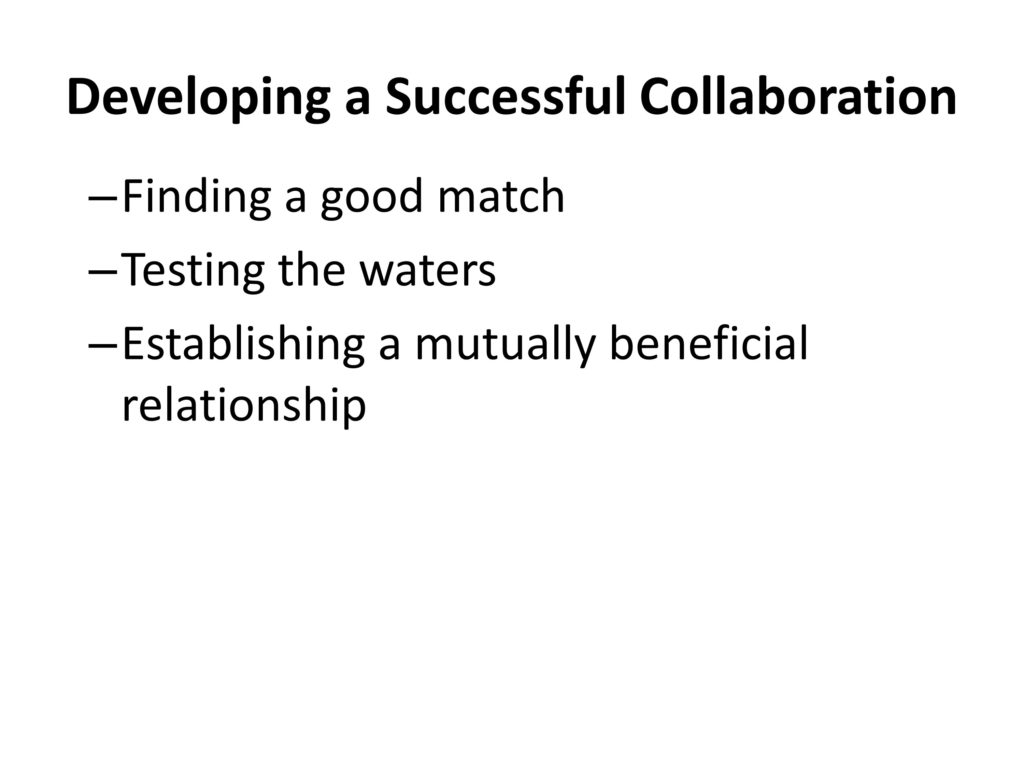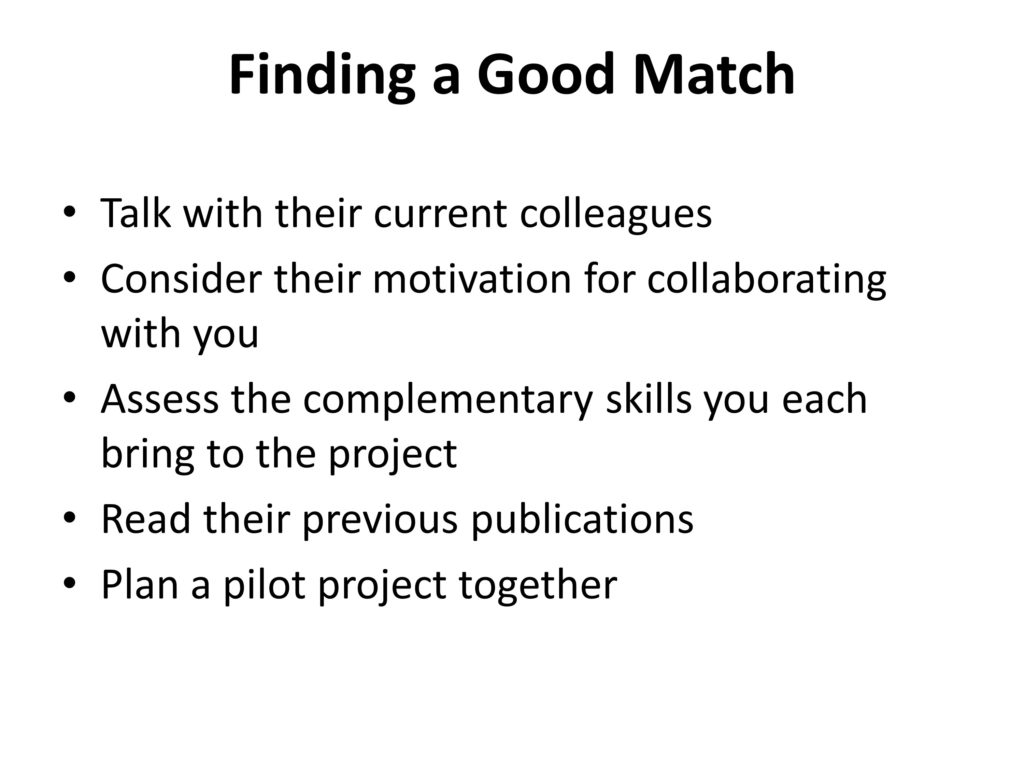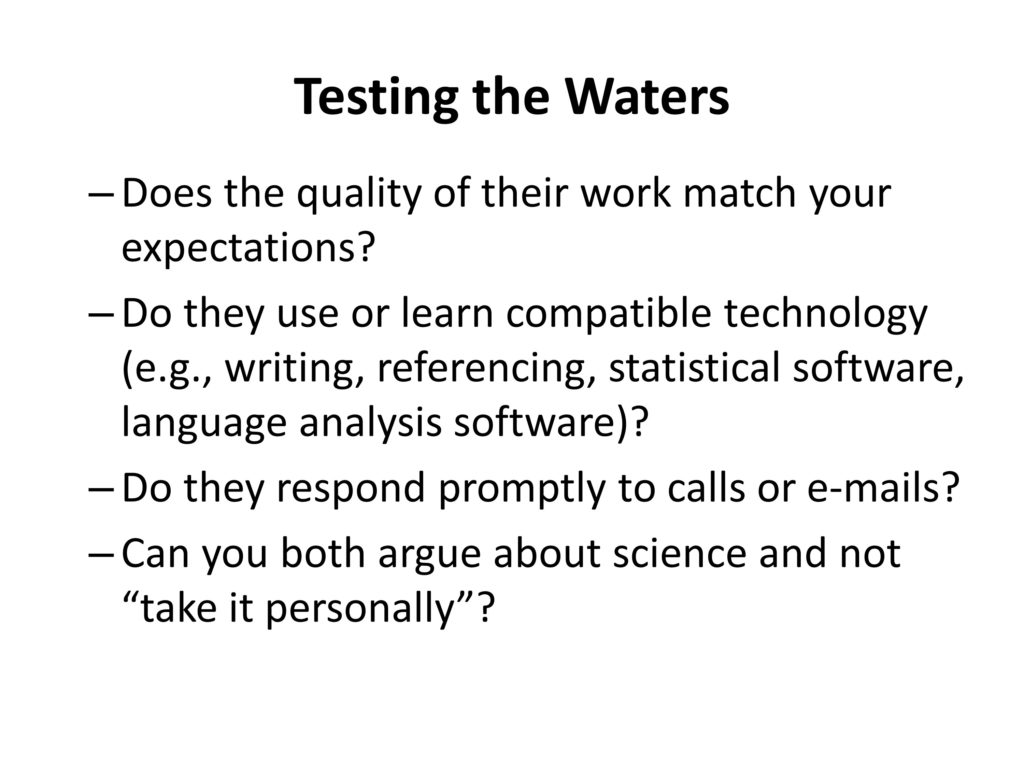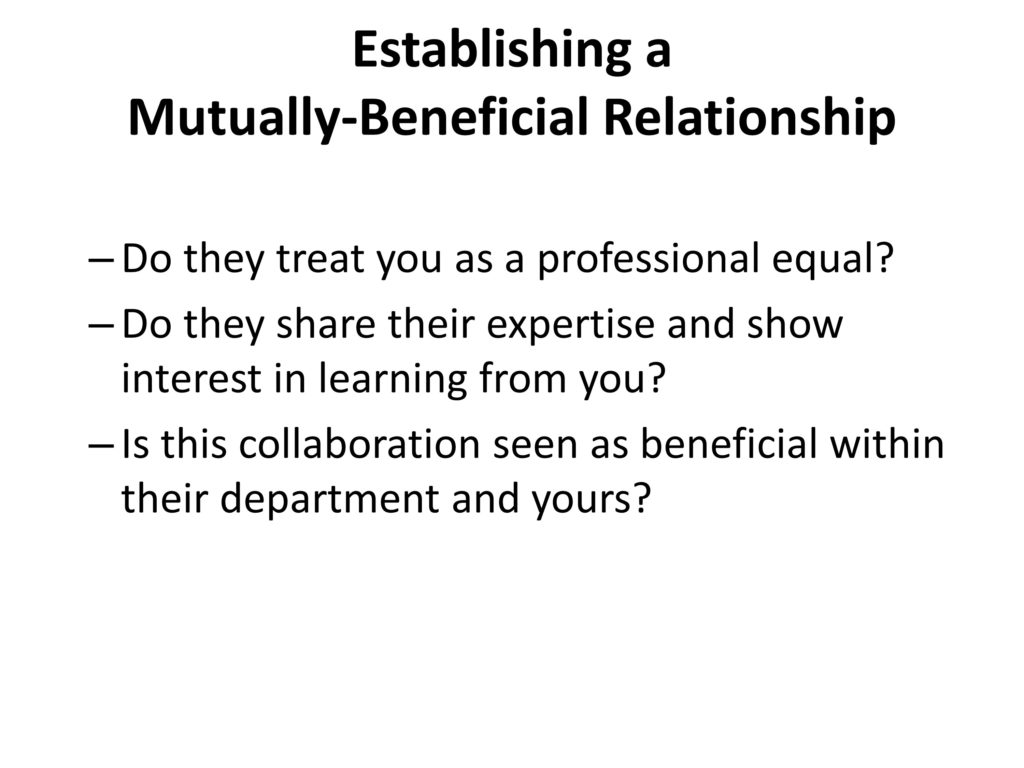The following is a transcript of the presentation video, edited for clarity.
I’m going to make three pretty fast points. I’ve never done any rewarding work without collaborators. It’s the most important thing I’ve developed in my career. I’m going to talk to you about finding a good match for collaboration, testing the waters to make sure you have a good match, and establishing a relationship that is beneficial to each of you—both yourself and your collaborator.
Finding a Good Match
 Here’s what I can think of about how I’ve gone about finding good matches. First of all, talk with people who work in your field. You have a certain need for collaboration, in a certain area. So you’re going to talk to your colleagues and say, I need somebody who is particularly good in audiology, or in physiological measures, and you get recommendations.
Here’s what I can think of about how I’ve gone about finding good matches. First of all, talk with people who work in your field. You have a certain need for collaboration, in a certain area. So you’re going to talk to your colleagues and say, I need somebody who is particularly good in audiology, or in physiological measures, and you get recommendations.
Consider what their motivation is for collaborating with you. You may have to sell the idea that working with you is a good idea. Show them what’s in it for them.
Assess complementary skills. Working with somebody just because they do the same thing you do is not very helpful. What you want is someone who has skills you don’t have, but that are important to the project you want to do. Complementary skills are very important to assess.
Read everything they’ve written, then talk to them about just sitting down and planning a pilot project. I’m interested in X. Let’s sit down, and let’s plan what a pilot study would look like. You’re going to have to do a pilot study anyway.
Those are all good ways to start out and identify a person who might be a good match for the project you want to do.
Testing the Waters
 Now, you’ve identified them, and what you want to do is test the waters. You haven’t committed yourself to a long-term arrangement yet. You’re going to try to judge the quality of their work. You’ve read their publications, but you’re planning a little pilot study together so you’re going to assess the quality of their work and see whether it really matches what you’re going to need for that project.
Now, you’ve identified them, and what you want to do is test the waters. You haven’t committed yourself to a long-term arrangement yet. You’re going to try to judge the quality of their work. You’ve read their publications, but you’re planning a little pilot study together so you’re going to assess the quality of their work and see whether it really matches what you’re going to need for that project.
You’re going to talk to them about technology. It seems like a very simple thing. But if you’re doing language analysis, and somebody is very committed to SALT, and you’re very committed to CLAN analyses. Or if one of you uses one kind of statistical software, and statistics are a big part of that project, and they don’t want to learn the software you use, that may be an issue down the line.
You want to make sure you can discuss using compatible technology for whatever project you’re going to do.
I don’t just collaborate with people at my own institution. A lot of people that you get to know at different meetings and institutions—do they respond promptly when you call them, email them? Are they getting back to you in a fairly short amount of time? If they don’t, that’s probably not a good sign.
And really important is arguing. Is it somebody you can argue with? Arguing makes a lot of progress, if you can do it without taking it personally. You don’t want someone who just agrees with everything you say.
Find somebody you can sit down and really disagree with about an approach or methodology or way of looking at a problem, and have fun disagreeing.
Establishing a Mutually Beneficial Relationship
 Finally, once you’ve done this, you should have a relationship that’s going to benefit both of you. You should have discovered that this person treats you as a professional equal, not either someone they consider to be very high above and they are going to agree with everything you say whether they really do or not, or someone who treats you like a technician. You don’t want either of those. You want someone who treats you as an equal.
Finally, once you’ve done this, you should have a relationship that’s going to benefit both of you. You should have discovered that this person treats you as a professional equal, not either someone they consider to be very high above and they are going to agree with everything you say whether they really do or not, or someone who treats you like a technician. You don’t want either of those. You want someone who treats you as an equal.
You have obviously gone out of your area of expertise to select them. Maybe they are in cognitive psych. Maybe they are in genetics, and you don’t know anything about that field. Will they share that expertise with you? Will they help you learn about that area? Are they interested in learning from you?
You are going to be teachers for each other if you are good collaborators, and you want to make sure they are willing to engage in that kind of relationship.
Some of my colleagues added this last one, and that is: does your department see this as a beneficial collaboration? Do your mentors, or department chair, or people in your department see it as beneficial to you. And does their department see this collaboration as in their interests. Because it will always work best if both of you are getting something.





